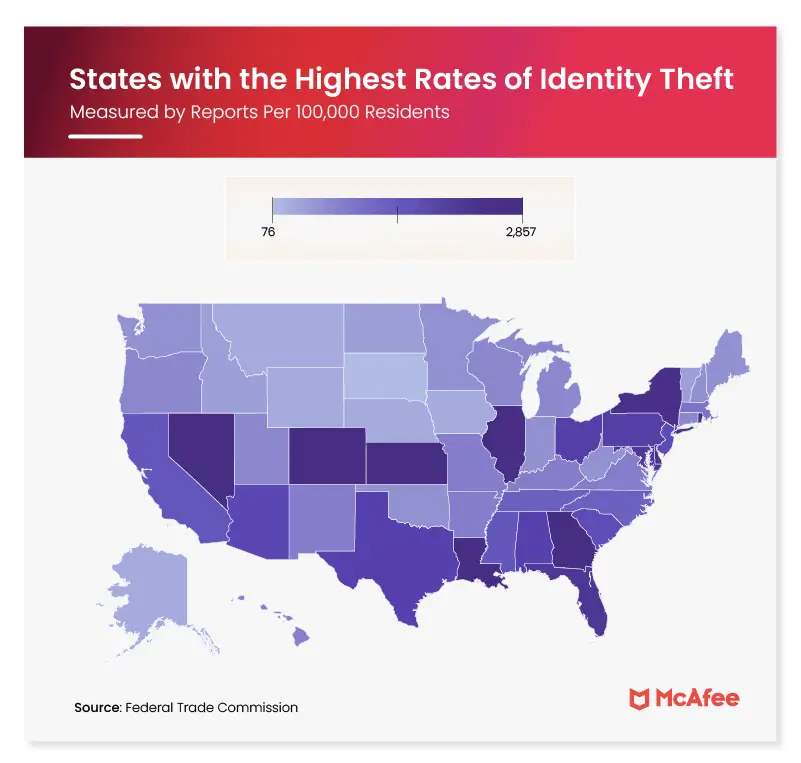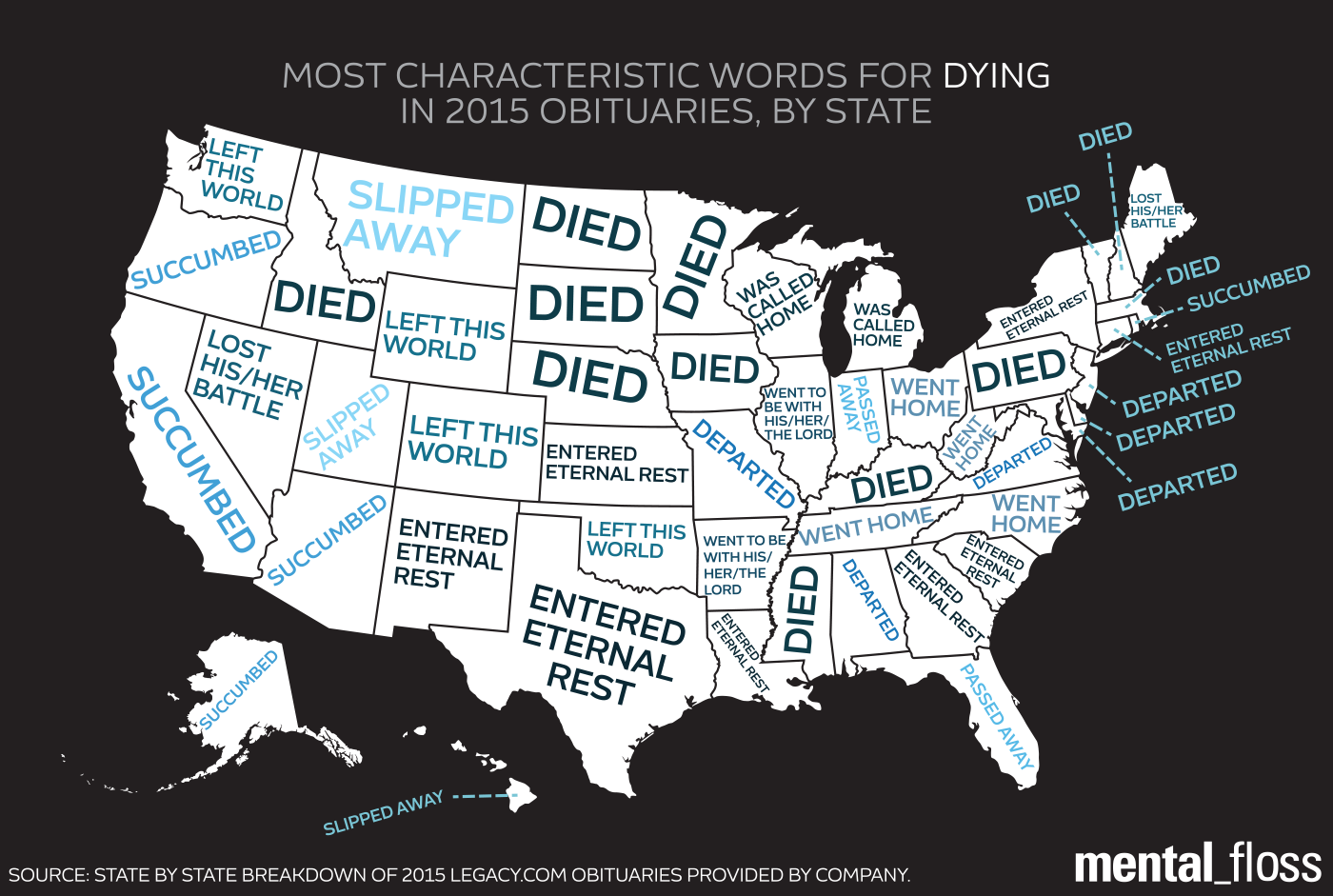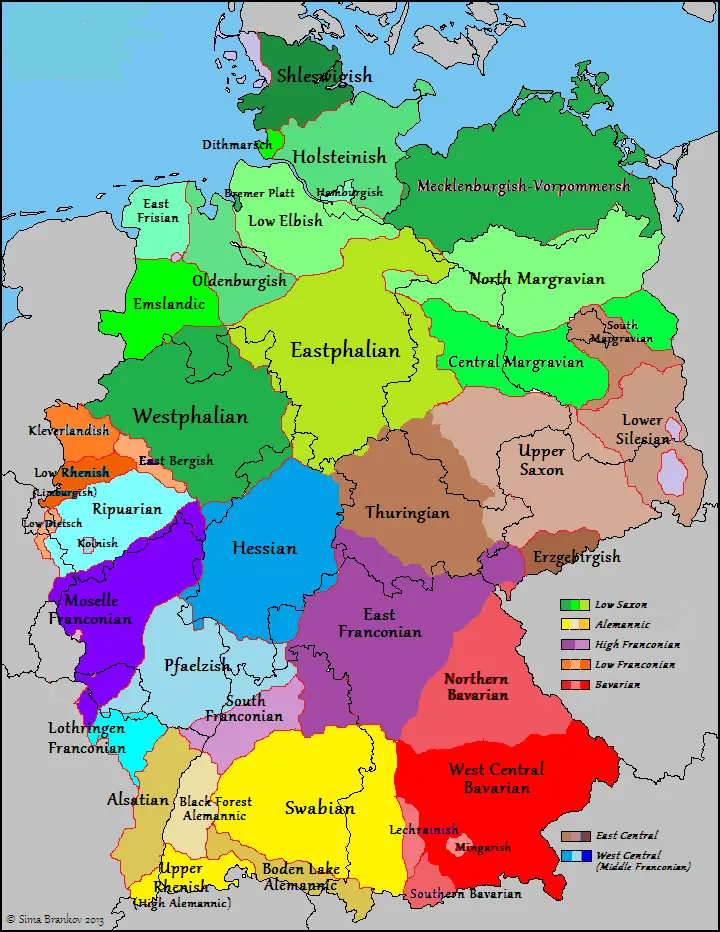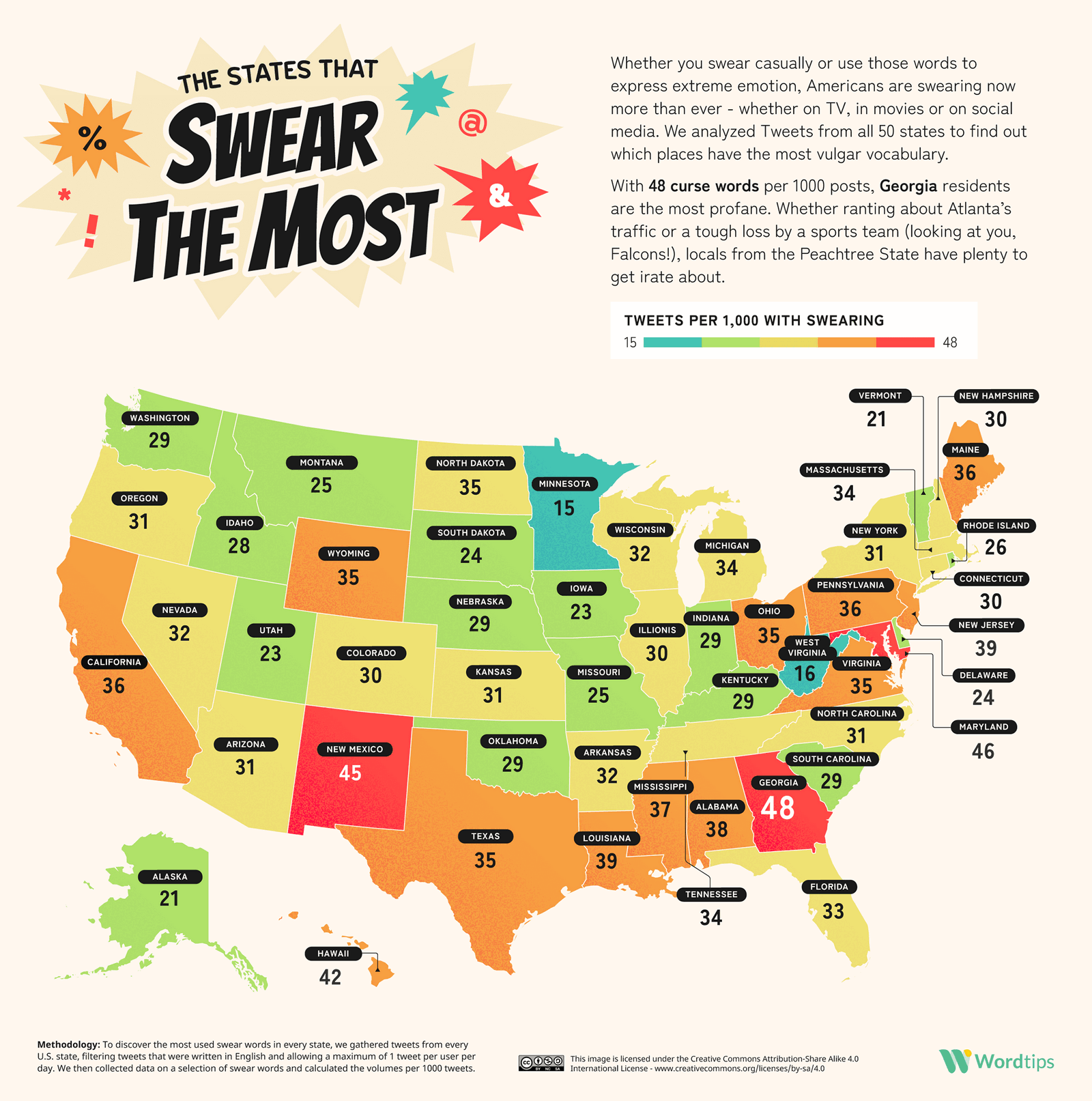Farewell Phrases: How Americans Describe Death in Obituaries

Language is a profound reflection of cultural identity, and perhaps nowhere is this more evident than in how Americans discuss death. A remarkable visualization by Mental_Floss reveals an intricate linguistic landscape of obituary language across the United States.
The Language of Loss: A Cultural Journey
Why do we struggle to say “died”? Psychologists suggest that our choice of words reflects a deep-seated human need to soften the harsh reality of loss. Each euphemism is a subtle coping mechanism, a linguistic buffer that helps communities process grief and maintain emotional distance.
The map of death phrases tells a rich story of regional identity. Some states embrace stark directness: Idaho, Iowa, and Massachusetts simply use “died,” reflecting a no-nonsense approach to mortality. In contrast, Southern and Midwestern states weave more elaborate narratives of departure.
Georgia, Connecticut, and Louisiana frequently describe death as “entering eternal rest”—a phrase laden with spiritual significance. This isn’t just language; it’s a cultural statement. The words suggest a view of death not as an endpoint, but as a transition, deeply rooted in religious traditions that see life as a journey beyond physical existence.
Across the country, each region adds its unique linguistic color. Colorado, Oklahoma, and Washington’s “left this world” implies a sense of mystery and passage, softening the finality of death. More militant phrases emerge in Maine and Nevada with “lost his/her battle”—a metaphor that transforms dying into an act of personal courage, speaking to American cultural values of individual resilience.
These linguistic choices aren’t random. The Pew Research Center’s Religious Landscape Study provides crucial context. In regions with strong Catholic and Protestant influences, obituaries lean towards spiritual metaphors. More secular states tend to use clinical or neutral language. A phrase like Michigan’s “was called home” reveals a communal, spiritually integrated view of death, while California’s “succumbed” suggests a more clinical perspective—a reflection of the state’s tech-driven, science-oriented culture.
Ultimately, these phrases are more than linguistic curiosities. They are emotional bridges, helping families and communities navigate the most profound human experience. Each carefully chosen word is an attempt to make sense of loss, to provide comfort, and to honor a life lived.








